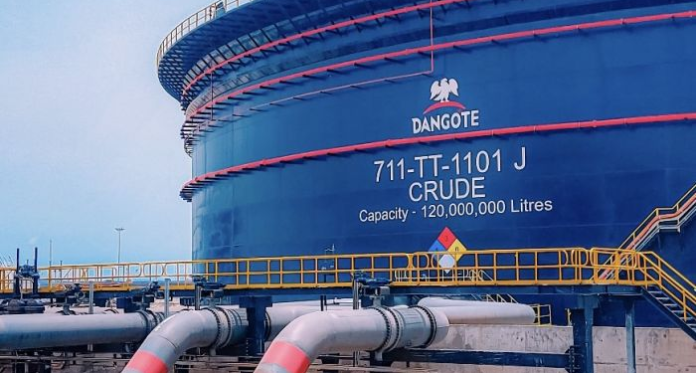The Dangote Oil Refinery, Africa’s largest, is poised to enter Nigeria’s $267.7 million polypropylene market next month, according to Aliko Dangote, the president of the Dangote Group.
This development marks a significant step as the refinery approaches full operational capacity.
Part of the expansive Dangote Industries conglomerate, the refinery aims to curb Nigeria’s dependence on imported polypropylene—an essential material for industries such as packaging, textiles, and automotive manufacturing.
“Nigeria will no longer import polypropylene from October,” said Dangote, highlighting that the country previously imported about a quarter of a million tons. “No more imports of polypropylene.”
Polypropylene, a versatile plastic widely used in packaging, textiles, automotive parts, and medical equipment, is currently imported in substantial quantities by Nigerian manufacturers.
According to TradeMap data, Nigeria’s annual polypropylene imports are valued at approximately $267.7 million, with the figure peaking at $407 million in 2022.
Recent figures from the National Bureau of Statistics (NBS) show that Nigeria imported N99.6 billion worth of polypropylene in the first quarter of this year, making it the 12th most imported product.
“We will fully meet the market demand,” Dangote emphasized, explaining how local production will ease manufacturers’ struggles with foreign exchange (FX) and long shipping times. “Industries will no longer need to stock up for months due to importation delays.”
Dangote also pointed out that his conglomerate is a major consumer of polypropylene, particularly in Dangote Packaging.

Currently, Nigeria imports polypropylene from Saudi Arabia, South Africa, South Korea, China, and Vietnam, which accounted for 90% of the country’s demand in the first quarter of 2024.
Polypropylene is favored in many industries due to its flexibility, durability, and cost-effectiveness. It is used in both flexible and rigid forms for various applications, including food packaging, caps, closures, and containers for products like condiments and detergents.
Fortune Business Insights, a research firm, noted that the polypropylene market is rapidly growing, driven by the increasing demand from the packaging industry, especially in the food and beverage sectors. The material is also valued for preserving product quality and reducing food spoilage.




